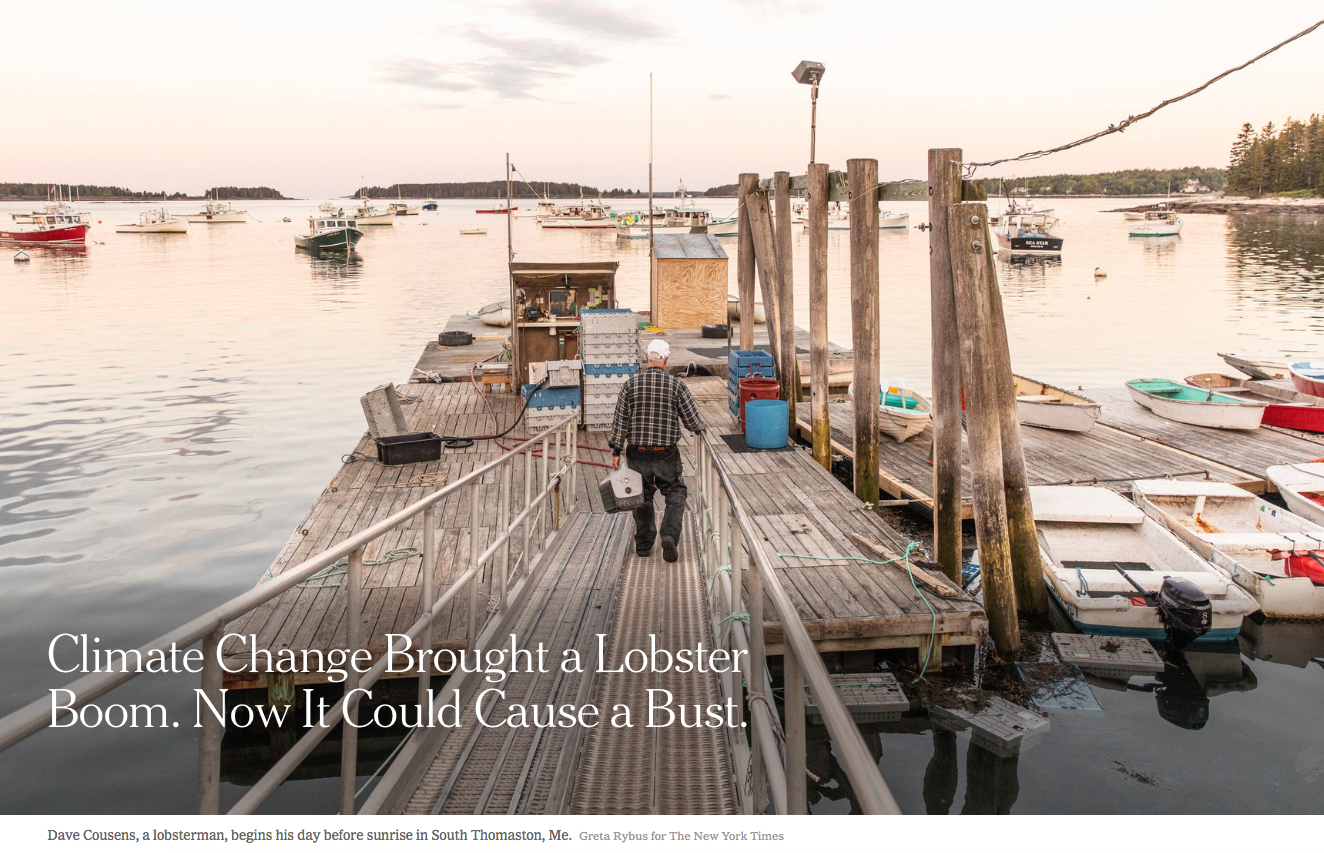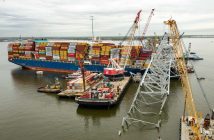Lobstermen in Maine are taking a double hit these days, one from global warming, the other from the impending trade wars. Both can have long-term consequences for an industry that accounts for half a billion dollars a year.
Water temperature in the Gulf of Maine has been rising since the early 1980s, as a result of global warming. Until recently, this was a good thing, with lobsters – and the entire lobster industry – thriving. But now we may be on the downward cusp of too much of a good thing. The waters are getting too hot and lobsters are moving farther northeast, even as far as Canada.
The state lobster catch was down last year, and lobstermen are worried. “Climate change really helped us for the last 20 years,” Dave Cousens, past president of the Maine Lobstermen’s Association told The New York Times. But now, he said “climate change is probably going to kill us in probably the next 30 years.” Cousens’ earnings fell 30 percent last year. “We’re on the downward spiral,” he said.
The problem is that Gulf of Maine waters have warmed faster than 99 percent of ocean waters around the world so far this century. Scientists say that by 2050 warmer water temperatures could cut the lobster population by up to 62 percent.
Meanwhile, the Trump Administration’s trade wars are taking a toll on Maine’s lobstermen now. China, which buys about one-fifth of U.S. lobster exports, is expected to impose an additional 25 percent tariff on American lobsters. This will put Canadian lobstermen at a competitive advantage, because they don’t face the same tariff in selling to China. They also are benefitting from a new trade agreement with the European Union that cut tariffs for them. Read more:
https://www.nytimes.com/2018/06/21/climate/maine-lobsters.html
https://www.nytimes.com/2018/06/22/us/politics/donald-trump-tariffs-trade-war.html




